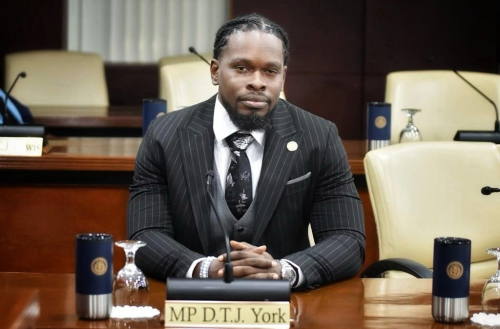 PHILIPSBURG:--- Decentralized tourism, a smart and innovative twist on travel, captured the attention of Member of Parliament Darryl York during the PAR Latino meetings in Panama in March 2025, where he explored its potential to revitalize and diversify tourism in St. Maarten. Unlike the traditional model that funnels visitors into crowded resorts or cruise ship terminals through major agencies, this emerging approach leverages blockchain technology, digital platforms, and peer-to-peer networks to empower local communities. Secure transactions allow hosts and small businesses to retain a greater share of the profits while offering travelers authentic, immersive experiences such as homestays, cultural workshops, or eco-adventures. By distributing tourism’s benefits more equitably, this model safeguards heritage and relieves pressure on over-touristed hotspots, a vision MP York believes is essential for sustainable development.
PHILIPSBURG:--- Decentralized tourism, a smart and innovative twist on travel, captured the attention of Member of Parliament Darryl York during the PAR Latino meetings in Panama in March 2025, where he explored its potential to revitalize and diversify tourism in St. Maarten. Unlike the traditional model that funnels visitors into crowded resorts or cruise ship terminals through major agencies, this emerging approach leverages blockchain technology, digital platforms, and peer-to-peer networks to empower local communities. Secure transactions allow hosts and small businesses to retain a greater share of the profits while offering travelers authentic, immersive experiences such as homestays, cultural workshops, or eco-adventures. By distributing tourism’s benefits more equitably, this model safeguards heritage and relieves pressure on over-touristed hotspots, a vision MP York believes is essential for sustainable development.
In Latin America, Brazil is leading the way with this model. In 2023, the country welcomed 5.4 million international visitors, generating $4.56 billion, while domestic tourism accounted for a $9.9 billion market. Digital platforms are now steering travelers beyond Rio’s iconic beaches to lesser-known destinations like indigenous Amazonian communities or the lush trails of the Atlantic rainforest, including the scenic Curitiba-Morretes train route, which experienced a 17 percent increase in revenue. Blockchain-enabled bookings eliminate intermediaries, ensuring more revenue reaches local hands and spurring job creation.
These achievements, showcased at PAR Latino, inspired York to envision how St. Maarten could embrace similar strategies to enhance its tourism offerings. With 80 percent of its workforce dependent on tourism, the island has long leaned on cruise ships and large resorts, often overlooking smaller communities and cultural treasures. Decentralized tourism could change this narrative by directing travelers to distinctive experiences such as cooking classes in the vibrant backstreets of Philipsburg or guided hikes through the island’s scenic hills, booked directly with local residents through digital platforms. This would generate employment, particularly for young people, and highlight the island’s unique Dutch-French cultural blend.
Still in the process of rebuilding from the devastation of Hurricane Irma in 2017, St. Maarten needs long-term, inclusive solutions. Spreading tourism’s benefits, as advocated by MP York, would support environmentally conscious lodging options, ease strain on coastal zones, and ensure broader economic participation.
The discussions at PAR Latino demonstrated how decentralized tourism can reshape entire destinations. A pilot initiative in St. Maarten could follow Brazil’s blueprint, linking travelers with the island’s cultural and natural heartbeat. This model promotes resilience and equity, making sure every community shares in the prosperity. As one local leader in Panama powerfully stated, “Tourism should plant seeds, not just footprints.”











